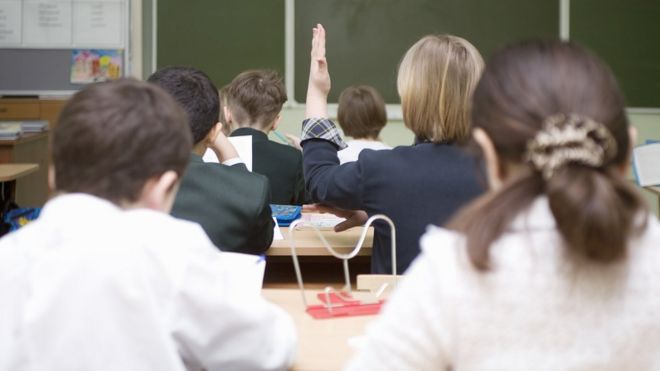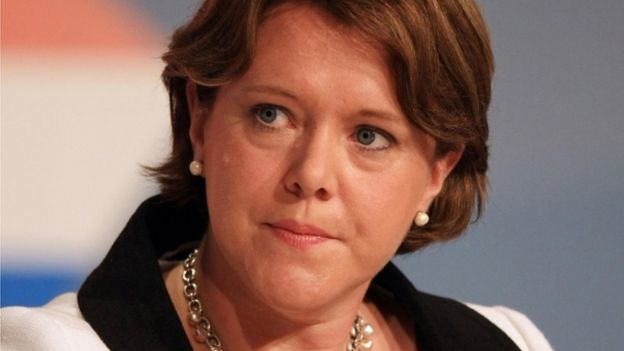
The Women and Equalities Committee will examine who is committing the offences, who is being targeted, and whether the number of cases is rising.
Research for the committee suggests sexualised behaviour among pupils is a social norm.
Heads say most schools and colleges are safe and secure environments.
In September 2015, a BBC News report based on freedom of information requests revealed there were 5,500 sexual offences recorded in UK schools between 2011 and 2014.
Within these figures, there were 4,000 alleged physical sexual assaults and more than 600 rapes, according to the information from UK police forces.
‘Pressurised’
At least a fifth of offences were carried out by children on children, but details of the rest of the assaults are not known.
The committee wants teachers, students, parents and youth organisations to share their experiences and knowledge with it.
Before launching a call for evidence, the committee gathered the views and experiences of 300 UK youngsters through a series of workshops with young people’s charity Fixers.
Case study

Rosie’s story
Rosie, which isn’t her real name, is from Wales. She says a girl started stalking her initially but things got much worse.
“She wanted a hug and I didn’t want anything to do with her. She didn’t like that,” she says. “So she grabbed me and pinned me up against the wall, and touched me in my private areas.
“I felt like I was trying to struggle to break free, but she was quite strong. Eventually she was pulled off me. It felt like a long time, but it was over quite quickly.”
Rosie says she didn’t report the assault for a long time because she struggled to make sense of it.
“I remember feeling quite embarrassed and I didn’t really want to talk about it at the time with anyone. I felt ashamed and quite disgusted really.”
When she did eventually report it to the school, Rosie says teachers disciplined the attacker but did not offer her enough support.
“It’s affected my self-esteem. I’m quite scared that something like that will happen again,” she says.
Read more about Rosie’s story in BBC Newsbeat’s article.
Its report says: “In school corridors and playgrounds, sexually charged behaviour drives young people’s physical interactions and permeates through to their 24-hour-a-day life online.
“They’re feeling pressurised into sex, otherwise they’re branded ‘frigid’ by their peers.
“There is a sense that boys have an ‘entitlement’ to girls and some report ‘being bullied for being a virgin’.”
The report suggests some teachers brush off incidents of sexual assault because of the relatively young age of students.
And often schools do not recognise the pressures young people can face when dealing with sexual harassment and sexual bullying.
It also suggests many incidents are not reported because students worry victims will be punished as well as perpetrators.

‘Brushed under carpet’
Maria Miller, who chairs the committee, said the evidence it had heard exposed a “really concerning problem” of “widespread sexual harassment on a regular basis”, particularly among young women.
However, she said, it was also concerning that school authorities found it difficult to know how to tackle these issues and “sometimes brush them under the carpet”.
“We need to address this issue now, and stop it from blighting the lives of another generation of young people – both male and female,” she said.
A spokeswoman for the Department for Education said: “Schools are safe places and fortunately crime in schools is very rare but sexual assault of any kind is an offence and must always be reported to the police.
“Sex and relationship education is already compulsory in all maintained secondary schools and we expect academies and free schools to teach it as part of the curriculum.
“We are also working with leading head teachers and practitioners to look at how to raise the quality of PSHE [personal, social, health and economic] teaching, which includes sex and relationship education.”
Evidence to the committee also suggests pupils would like more support in dealing with sexting, online bullying and the normalisation of pornography.
Malcolm Trobe, interim general secretary of the Association of School and College Leaders, said: “Sexual harassment and sexual violence are completely unacceptable and are not tolerated.
“Where there are incidents, we would urge students and parents to report them immediately so that action can be taken.
“We welcome the committee’s inquiry as any information about this important issue is extremely useful in helping to tackle the problem.”
‘Boys will be boys’
Laura Bates, founder of the Everyday Sexism Project, also welcomed the inquiry, saying young people were not being given the tools they needed to understand how to navigate the bombardment of images and messages they get from places like online pornography.
She said there was a “widespread difficulty” in reporting sexual violence.
There were cases in schools of young women being pressurised or forced into sexual acts or sexting and the school punishing them as well as the perpetrators, she said.
“We do also hear from girls who report this type of harassment or even unwanted sexual touching to teachers only to be told, ‘Boys will be boys,’ or, ‘He probably just likes you.’
[Source:- Bbc]
